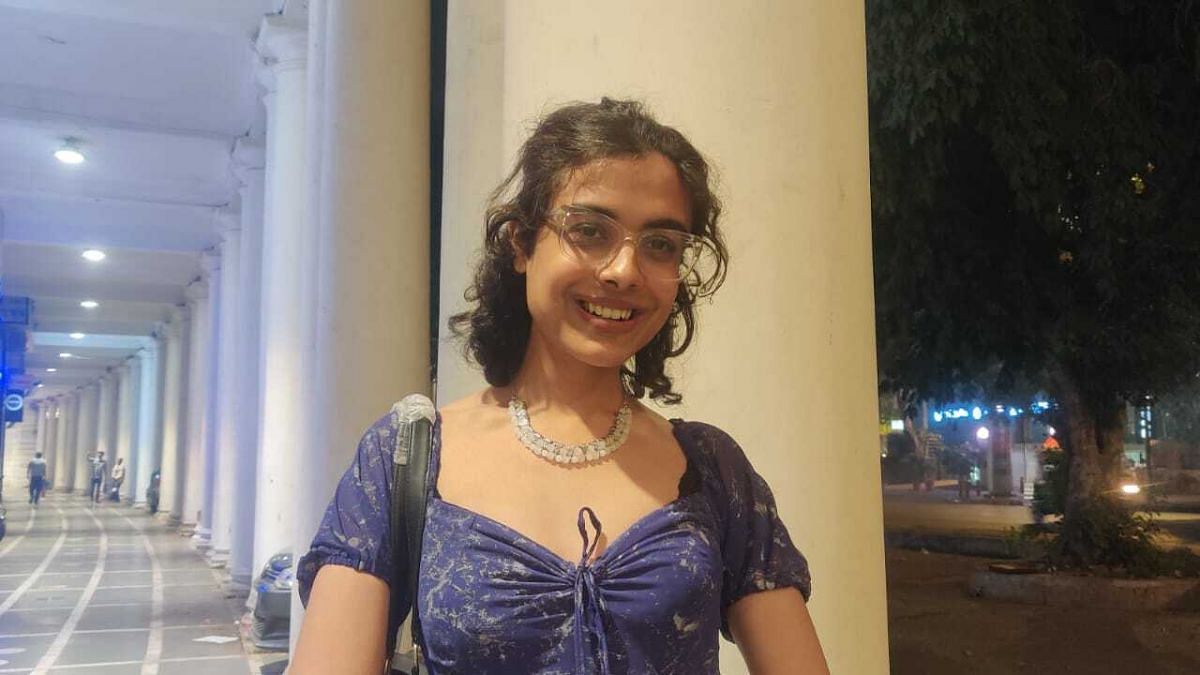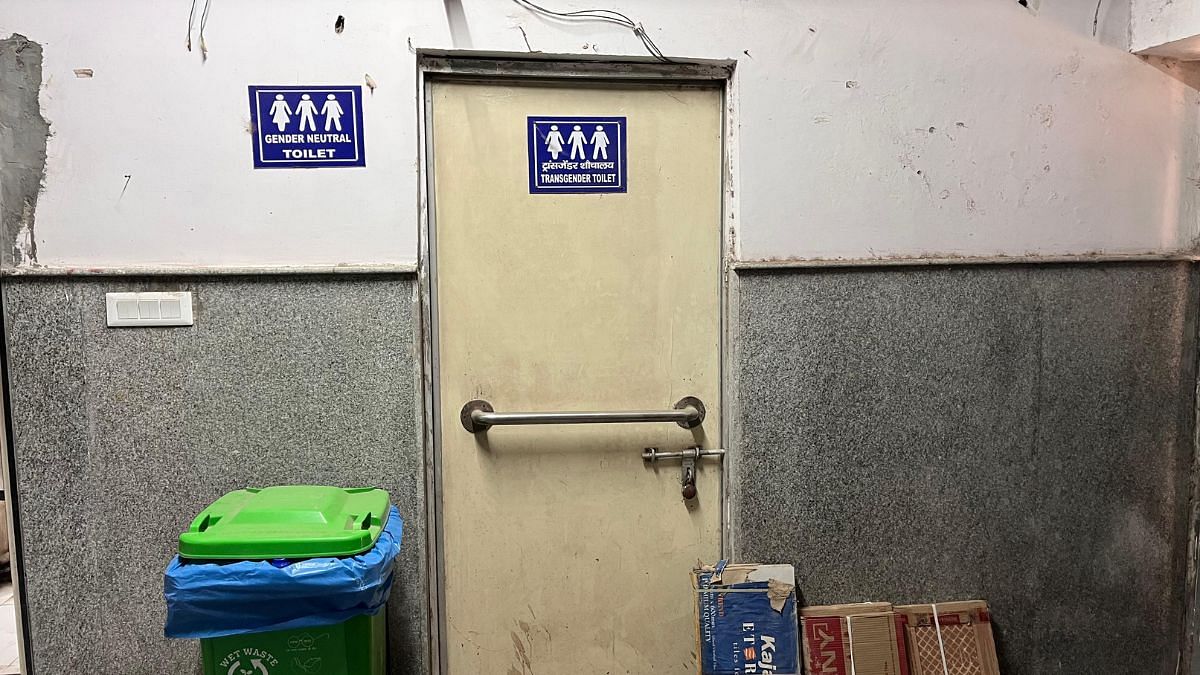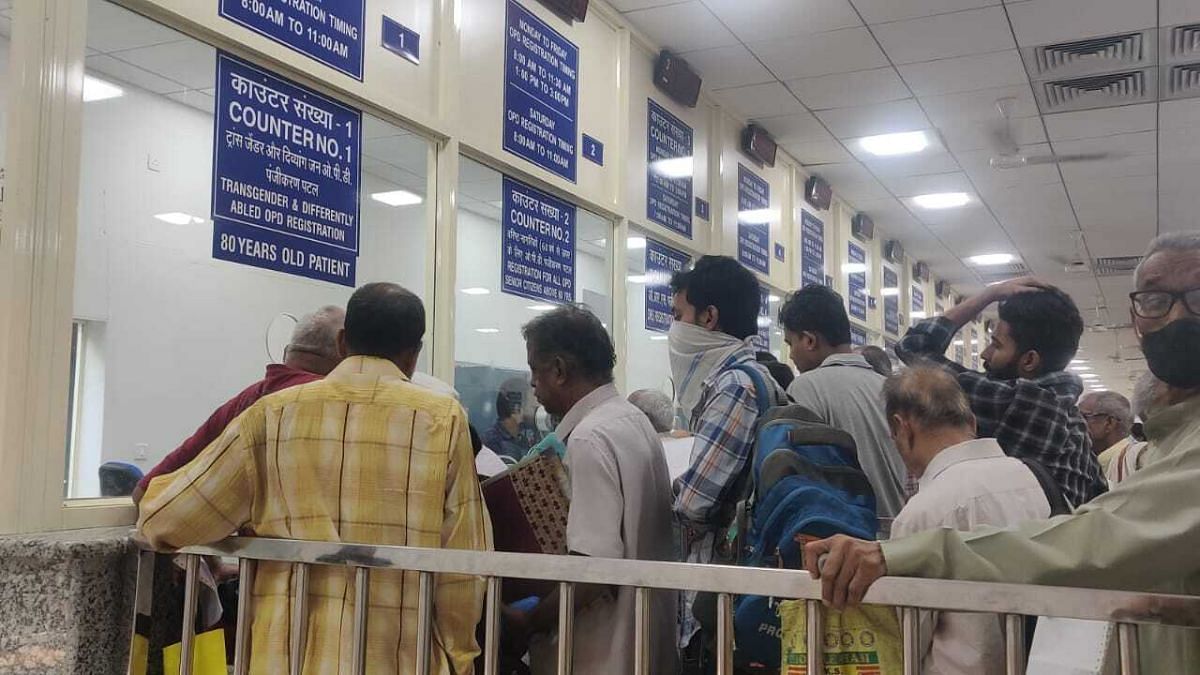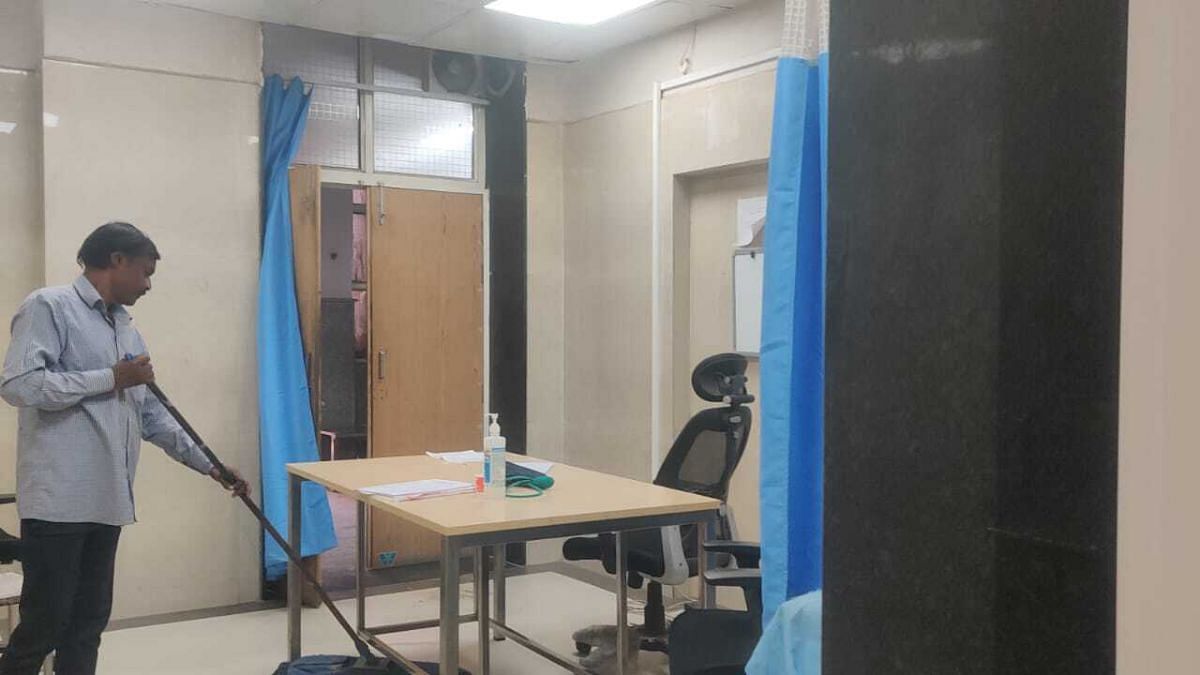Instead, she faced a slow and frustrating process. “They gave us slips at the OPD and then sent us to the endocrinology department, where they told us we would need six months of counseling sessions. Only then, in a board meeting, would the experts decide if we’d be approved for HRT,” she recalled.
Sex reassignment surgery (SRS), or gender-affirming surgery (GAS), is an operation to alter a person’s physical and sexual characteristics to match—or better match—their gender identity.
Transgender or non-binary individuals—who don’t identify with the gender assigned to them at birth—need to follow a number of steps to access such a surgery.
First, they need to meet with at least two psychologists, who will diagnose if the individual has gender dysphoria—clinically significant distress caused by a mismatch between their biological sex and gender identity—and issue them a certificate to that effect.
This allows them to begin HRT to support their gender transition. Also called gender-affirming hormone therapy (GAHT), HRT helps transgender and gender-nonconforming individuals develop physical characteristics that affirm their gender identity.
Often times, HRT is a life-long treatment, even after gender-affirming surgeries.
Dr Mahesh Mangal, chairman of the department of plastic and cosmetic surgery at Sri Ganga Ram Hospital, said, “It is typically prescribed for a lifetime or around 20 years. While the dosage may be reduced over time, it generally needs to be continued indefinitely.”
Removing the uterus and ovaries in females reduces hormone levels significantly, while the removal of testes reduces testosterone production for men—both make HRT essential even after the surgery, he explained.

Adding to Prerna’s frustration, as she was gathering information for the process, the staff also told her that hormone injections weren’t available at the hospital and would need to be purchased from outside. She was further told the machine for laser treatment—to get rid of unwanted body hair—was not available at the time. They told her that they could refer her to another centre from where she could get it done on her own.
“Of course, that would cost us. They were clearly unprepared,” Prerna told ThePrint. “If they didn’t have the resources, why open the OPD in such a rush? OPD was only there for registration, no doctor was present there. We were sent to different departments which was another headache.”
Also Read: As ex-cricketer Sanjay Bangar’s daughter reignites debate on trans people in sport, here’s what rules say
Zero surgeries, gender neutral washroom locked
Over a year since its inauguration, the RML clinic now sits largely empty, with just a handful of patients. The general medicine OPD houses seven rooms, one of which is the dedicated transgender OPD, operating exclusively on Fridays from 2 pm to 4 pm.
During visits to the hospital, ThePrint found that, despite departments like urology, plastic surgery, gynaecology, and paediatric surgery promising gender-affirming care, not a single such surgery has taken place yet.

Professor Dr Sameer Bhattacharya, RML’s head of burn, plastic, and maxillofacial surgery, told ThePrint, “We’ve completed full assessments for three patients, who are now set to undergo surgery, following referrals from RML’s Gender Reassessment Board. However, no surgeries have been conducted so far.”
Meanwhile, the gender-neutral washrooms remain locked, further underscoring the gap between promises and reality.
A lengthy process
According to Dr Ajay Shukla, the hospital’s director and medical superintendent, the transgender OPD initially saw around 20-25 patients daily. Since then fewer individuals have come in and he believes it’s because of the length of the process to get SRS.
He stressed that the process for gender-affirming treatment is extensive and cannot be rushed. “People may expect that everything—surgery, hormone therapy—happens immediately. But that’s not how it works,” he said.
Dr Rajesh Khadgawat, head of the endocrinology department at All India Institute of Medical Sciences (AIIMS), Delhi, explained the importance of ensuring that a patient’s decision for surgery is firm and irreversible.
“Once surgery is performed, it cannot be undone,” he emphasised.
To confirm the patient’s commitment, a psychiatrist conducts a thorough assessment over multiple sittings, typically spanning three to six months. Once the evaluation is complete, the patient is issued a certificate in specific language, signed by two psychiatrists. This certificate confirms that the individual is firm in their decision, will not seek reversal, and is ready for surgery.
Patients must obtain psychiatric clearance and complete one year of hormonal treatment before being referred to the department of plastic surgery, where the surgeries are conducted.
Dr Shukla said, “After thorough counseling… then their treatment starts. Hormonal medications are administered for at least a year. After that period, we assess whether surgery will be the next step. If surgery is deemed appropriate, we proceed.”
Dr Shukla also clarified that surgeries like laser or hair removal and breast implant surgery come under the cosmetic surgery department and not under the transgender OPD, so they are not free.
“Surgeries like gender or sex reassignment are free of cost, but the process is long,” he added. He also said that no separate budget was assigned for the OPD and there were no financial constraints in running the OPD.
‘Need accessible information about trans healthcare services’
RML Hospital’s official website does not specifically mention the dedicated transgender OPD and the services that it offers. The only reference is under the psychiatry section, which lists a transgender clinic held on Fridays, offering psychosocial support to patients.
The registration area at the hospital is also common for transgender individuals, differently abled people, and 80-year-old patients.
While speaking to ThePrint, transgender rights activist Vihaan Vee from Maharashtra emphasised the need for a registration counter exclusively for transgender individuals.
“Trans persons often have more questions and require additional guidance, beyond simply taking a registration slip,” he explained. “A separate counter would not only address these unique needs but also provide clarity on navigating the hospital system—whether it’s about making an appointment or accessing specific health services.”
Vee, who identifies as a trans man, further highlighted how it would help if hospitals made information about trans healthcare services more accessible—perhaps through a dedicated website section, intentional advertising, or a list of available schemes.
“A specific helpline or health desk for trans inquiries would also make a big difference, as current general hospital lines often don’t provide the needed guidance. When researching trans-friendly services, we struggle to get relevant information through standard contact numbers,” said Vee.
Government schemes and implementation
Though central and state governments have launched a number of welfare schemes for transgender individuals, implementation has been a challenge.
In 2022, the Ministry of Social Justice and Empowerment signed a memorandum of understanding (MoU) with the National Health Authority (NHA) to provide a comprehensive medical package for transgender people under the Ayushman Bharat-PMJAY—a central government scheme. However, progress on insurance coverage has been slow, with tangible outcomes still awaited.
Implementation may be complicated by the fact that there is no official data on transgender individuals in India. For instance, the 2011 Census used an overarching category of ‘other’. This would also include any person who did not wish to record their gender.
A 2019 statement from the Ministry of Social Justice and Empowerment said, “It is also possible that some transgender would have returned themselves either male or female depending upon their choice. The population of ‘other’ as per Census 2011 is 4,87,803.”
Other government hospitals in Delhi, such as Lok Nayak Jai Prakash Hospital (LNJP) and GTB Hospital, also offer sex reassignment surgeries, though they do not have a dedicated OPD for this. Instead, these procedures are carried out under the burns and plastic surgery departments. The procedure at government hospitals is free.
However, a doctor from the burns and plastic surgery department at LNJP confirmed to ThePrint that no gender-affirming surgeries have been conducted there in over a year.
Several private hospitals, including Max, Sri Ganga Ram, Fortis, Shalimar Bagh, and OLMEC, also offer SRS with costs typically ranging from Rs 8 to 10 lakh.
Dr Mangal from Sri Ganga Ram Hospital said, “If we do a female-to-male transition, surgeries involve multiple stages. The first stage is breast removal, costing around 1.5 to 2 lakh rupees. The second stage, which involves removing the uterus, vagina, and ovaries, costs approximately another 2 lakh rupees.”
“The final stage, reconstructing male genitalia, costs around 5 to 6 lakh rupees, bringing the total to about 8 to 10 lakh rupees. The process and cost is almost similar for male-to-female transition as well.”
This estimate does not include the cost of HRT medications, an essential ongoing expense, he added.
According to him, the hospital has performed at least 25 sex reassignment surgeries this year.
In November last year, AIIMS, Delhi, a central government hospital, announced that it would set up a dedicated Centre of Excellence for transgender healthcare on the campus. It was to be established at the burns and plastic surgery department of the institute. It is yet to happen.

Still, for the past two years, AIIMS has been providing transgender care on Mondays after 4 pm, primarily through three departments—endocrinology, psychiatry and plastic surgery.
Dr Khadgawat, head of the endocrinology department at AIIMS, said they have not been able to start a dedicated OPD because of a lack of infrastructure.
“All tests—such as HIV and hepatitis screenings—are provided free of charge. Psychiatry referrals are also free, as are admission, sex reassignment surgeries, and laser treatments (only face). However, patients are required to purchase their own hormone therapy medications. Additional surgeries, like breast implants, incur charges, ranging from Rs 50,000 to Rs 3 lakh,” Dr Khadgawat told ThePrint.
He also shared that over the past two years, 350 transgender individuals have been treated at the AIIMS clinic. “We have submitted a proposal to AIIMS requesting that if CSR funding of Rs 20 lakh is provided annually, we will be able to offer all treatments free of cost to transgender patients.”
‘My body is not an experiment’
Another 26-year-old member of the transgender community, who wished to not be named, chose AIIMS over LNJP Hospital because of its gender-sensitive environment and supportive staff.
“The process took nearly 3 years, but I’m satisfied,” she said. “At LNJP, they asked for my parents’ consent, which wasn’t mandatory but they still insisted, and since my parents weren’t ready at the time, it became an issue. When my parents eventually agreed, they suggested that I avoid government hospitals due to the limited facilities available.”
She was the first transgender individual at AIIMS to undergo SRS. Her journey included 7-8 months to obtain a gender dysphoria certificate, followed by two years of hormone therapy. After gathering all the requisite documents over six months, it took another six months to undergo surgery. She also underwent laser hair removal, bringing her total expenses to around Rs 2 lakh.
“The government should support us more,” she remarked. “They should provide hormone injections and other medications, and offer laser treatment separately as well.”
Due to the high cost of medications and the lengthy medical process, some individuals choose to manage their hormone therapy on their own, buying medications from local pharmacies.
“The process is lengthy. Consultations with a psychologist alone can take three to six months, which can be a challenging wait for trans women already experiencing severe dysphoria. I take over-the-counter medicines,” one trans woman shared with ThePrint.
“Throughout India, trans women are prescribed the same medications for transitioning, with dosage adjustments depending on individual needs. So, I just get them myself. If I have the money, I get blood tests done every six months to monitor my levels and adjust my dosage if needed.”
Unlike the 26-year-old trangender individual who chose AIIMS, Prerna opted for a private clinic. She got her gender dysphoria certificate within two days and began her hormone therapy last December. The ongoing treatment has already cost her Rs 60,000, and she’s now saving for her surgery.
“The expense has been challenging, especially since I have no financial support and live independently. But I feel happy and content. It’s my body, and I couldn’t let any government hospital treat it like an experiment,” she said.
(Edited by Sanya Mathur)
Also Read: Delhi’s 1st transgender LS candidate on mission that goes beyond gender-neutral toilets. ‘This is kranti’

